The beginning of a new academic year calls for fresh distractions, and I come fully equipped to help you drain your wallets and your study time. Even better, you can tell yourself you’re wasting neither; reading is good for you, it makes you smart. You might as well be studying for your actual degree. Girl maths is calculating how many pretty hardcover novels you could buy with the money you saved by pirating your textbooks online (for legal purposes, this is a joke).
Full disclosure, this list does not offer very much in the way of nonfiction, aside from a few little numbers I especially liked the look of, which I’ve put in their own category. Sorry to the non-fiction buffs, but also not really.
General Fiction:
The Mother of All Things by Alexis Landau
(Releases May 7)
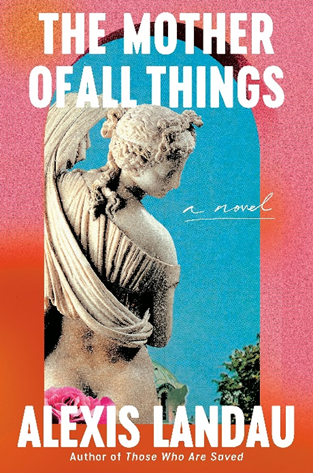
This one is for all my dark academia girlies. Think The Secret History but more human, and with a healthy dose of female rage.
Ava Zaretsky is a wife, mother, and art history professor. Following her husband to a film shoot in Bulgaria one summer, she is ‘swept up into a circle of women who reenact ancient Greco-Roman mystery rites of initiation, bringing her research to life and illuminating the story of a 5th-century-BC mother-daughter pair whose sense of female loyalty to each other and connection to the divine feminine guides Ava in her exploration of the eternal stages of womanhood.’
Read the full synopsis (and preorder, if you like) here.
See also:
Table for Two by Amor Towles (releases April 2)
From the bestselling author of A Gentleman in Moscow, The Lincoln Highway, and Rules of Civility comes a collection of six short stories set in turn-of-the-(twenty-first)-century New York City and a novella set in Hollywood’s Golden Age. Fans may recognise some characters from Rules of Civility.
What I Would Do to You by Georgia Harper (releases March 26)
A speculative fiction which places the reader in a near-future Australia, where the death penalty is legalised—but the family of the victim must carry it out themselves.
Fantasy/Science Fiction:
The Atlas Complex by Olivie Blake (The Atlas Six #3)
(Released January 9)
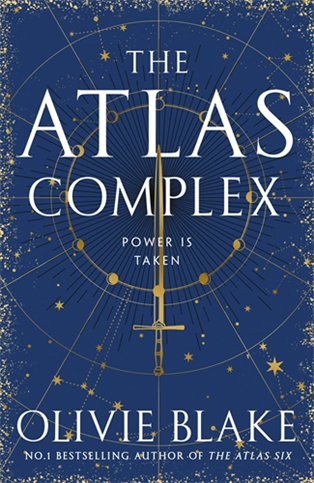
Is it the year for dark academia, or are publishers milking this trend a little bit? Here’s another one which will be a favourite with the dark academics among us.
That was cynical of me—when they don’t feel formulaic, tropey, and artificial (read: exclusively written to test their luck on BookTok), the dark academia branding can work well. This series seems to resonate with a very wide audience, so I’m sure we can expect good things.
The final instalment in the Atlas Six trilogy which more or less pioneered the BookTok cult of dark academia, The Atlas Complex is ‘a race to survive as the Society recruits are faced with the question of what they’re willing to betray for limitless power—and who will be destroyed along the way.’
More info here.
See also:
House of Flame and Shadow by Sarah J. Maas (released January 30)
I’m personally an SJM hater, but as that is a controversial opinion I’ll mention that House of Flame and Shadow came out last month. It’s the third instalment in the Crescent City series, and the Google animation was a jump-scare when I was researching for this article. As one of my friends said, Oh God, she got to the tech bros.
Faebound by Saara El-Arifi (released January 23)
Elves, fairies, high stakes and romance providing all the escapist vibes for your Semester 1.
Tales of the Celestial Kingdom by Sue Lynn Tan (released February 6)
An illustrated collection of short stories set in the world of fantasy romance duology Daughter of the Moon Goddess and Heart of the Sun Warrior, inspired by Chinese legend.
Historical Fiction:
All We Were Promised by Ashton Lattimore
(Releases April 4)
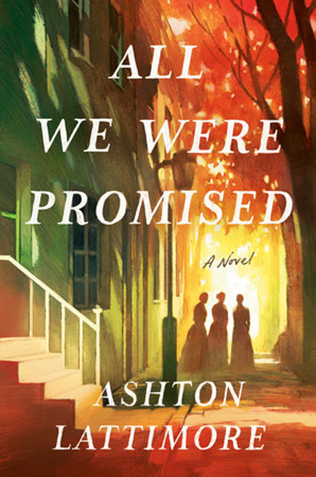
‘A housemaid with a dangerous family secret conspires with a wealthy young abolitionist to help an enslaved girl escape, in volatile pre-Civil War Philadelphia.’
Aside from a gorgeous cover, All We Were Promised proffers commentary on racial injustice, Western slavery, class divides, and female friendship. We follow three young Black women in 1937 Philadelphia fighting for freedom, inspired by the real-life Philadelphia Female Anti-Slavery Society and the Philadelphia abolitionist movements during the early 19th century.
I expect this one will be a brilliant debut from Ashton Lattimore, award-winning journalist and former lawyer.
More info here.
See also:
The Familiar by Leigh Bardugo (Releases April 9)
The author of Shadow and Bone, Six of Crows, and Ninth House delves into the world of adult historical fantasy, set in the Spanish Golden Age.
Literary Fiction:
Hagstone by Sinéad Gleeson
(Releases April 11)
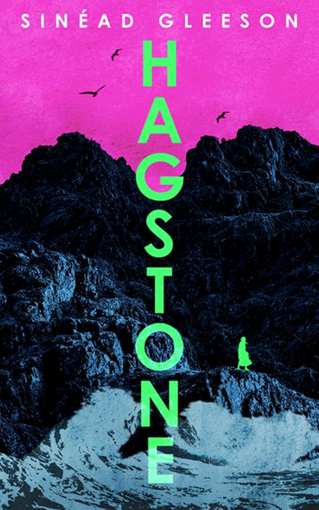
Recent years have seen some brilliant literary voices coming out of Ireland—I’m thinking of Sally Rooney, John Boyne, Maggie O’Farrell, among others—so I have high hopes for Sinéad Gleeson’s debut Hagstone.
Drawing on myth and folklore, Hagstone places our protagonist Nell on an isolated island, ‘the source of inspiration for her art, rooted in landscape…and the feminine.’ The island is inhabited by a commune of women who travel from all over the world seeking its refuge. Described as ‘beautifully written, prescient and eerily haunting,’ I think this one will be gorgeous.
More info here.
See also:
Until August by Gabriel García Márquez (releases March 12)
This one is super exciting—a lost novel by the Nobel Prize-winning author of One Hundred Years of Solitude and Love in the Time of Cholera, to be published with the permission of his two sons. Sure to be an instant modern classic.
Anita de Monte Laughs Last by Xochitl Gonzalez (releases March 5)
‘A mesmerising novel about a first-generation Ivy League student who uncovers the genius work of a female artist decades after her suspicious death.’ (Macmillan)
Whale Fall by Elizabeth O’Connor (releases April 25)
Set on a remote Welsh island, this one is a study of ‘loss, isolation, folklore, and the joy and dissonance of finding oneself by exploring life outside one’s community.’ (Penguin Random House)
Nonfiction: A Novel by Julie Myerson (released January 2)
I want to read this based on the title alone. Nonfiction dissects the relationship between a mother and her child. We look at motherhood, addiction, and the act of writing.
Crime & Thriller:
Anna O by Matthew Blake
(Released January 31)
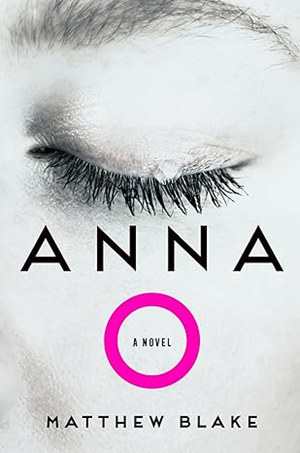
Predictably and unsurprisingly, I work at a little independent bookshop in Kingston, which is in part how I’ve devised this list. Since its release at the end of January, Anna O has been selling well. According to our customer base, at least, it probably isn’t quite the ‘instant global phenomenon’ HarperCollins eagerly declares it to be, but it’s definitely getting some solid attention.
Anna O is an ‘ingenious’ (The Times) psychological thriller interested in the human mind and its subconscious. Anna O, suspected of the murder of her two best friends, has been in a deep sleep for four years. Forensic psychologist Doctor Benedict Prince must find a way to wake her, and in the process any information about what happened the night of the murders.
‘As he begins Anna O’s treatment – studying his patient’s dreams, combing her memories, visiting the site where the horrors played out – he pulls on the thread of a much deeper, darker mystery. Awakening Anna O isn’t the end of the story, it’s just the beginning.’
More info here.
See also:
Butter by Asako Yuzuki (releases March 6)
I believe Butter has met with success overseas, and is being published for the first time in Australia. We’re getting so much fantastic Japanese literature, which I’m loving (Japan and Ireland absolutely killing the game). Inspired by a real case, Butter is ‘a vivid, unsettling exploration of misogyny, obsession, romance and the transgressive pleasures of food in Japan.’ (HarperCollins)
James by Percival Everett (releases March 19)
A ‘harrowing and fiercely funny’ (Penguin) retelling of The Adventures of Huckleberry Finn, from the perspective of the enslaved Jim.
Romance:
Funny Story by Emily Henry
(Releases April 23)
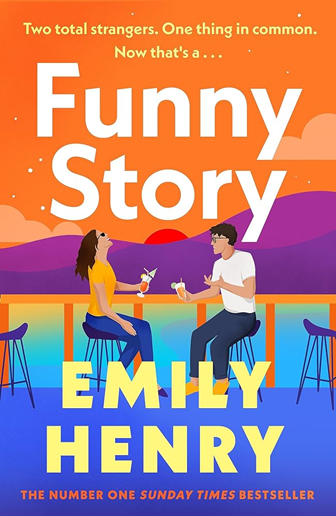
I think Emily Henry (author of Beach Read, Book Lovers, and You and Me on Vacation among other titles) could quite reasonably be called the mother of BookTok romance. Maybe I should confess that I haven’t actually read any of her novels yet, simply because romance isn’t a genre that I tend to gravitate towards, but her readership is so large and so devoted that it’s pretty clear Funny Story will be big this year.
There is absolutely something to be said for the importance of the romance genre, and the questionable foundations on which we often dismiss it as unimportant or holding less literary value. Romance as a genre is often written by women, typically for women, centring female characters. Lately I’ve been interested in the way we determine our hierarchies of artistic value, and the potential sociocultural issues underlying the way we perceive literature and its importance. Emily Henry herself did an interview with The Age last year which I thoroughly enjoyed—if you’d like to give it a read, here’s a link.
But I digress. Funny Story sets our heroine Daphne in a small town, ‘propositioning [her ex’s fiancé’s ex, Miles] to move in. As roommates of course. A temporary solution until she gets a new job literally anywhere else.’ The ‘awkward exes of exes-to-friends-to-lovers’ trope is a new one for sure, but I have no doubt all the romance lovers will eat it up.
More info here.
See also:
Fangirl Down by Tessa Bailey (released February 13)
The bestselling author of It Happened One Summer is jumping on the sports romance trend, but the love interest ‘was once golf’s hottest rising star’ (HarperCollins, italics added by me for emphasis). A romance novel where our protagonist is the hardcore fangirl of a ‘gorgeous, grumpy golfer’ sounds insane, and if I end up reading it you can be so sure of a review. (If not, someone else read it and tell me how it is.)
Token Non-Fiction:
Outspoken by Dr Sima Samar
(Releases March 6)
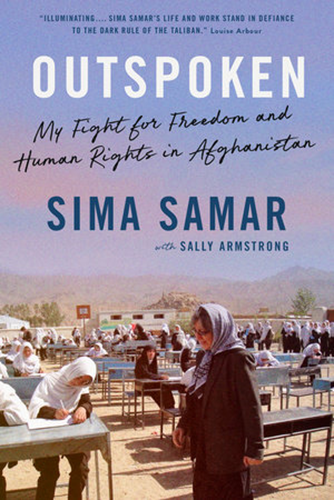
This list has been almost entirely composed of fiction (sorry, not sorry), and while there were several non-fiction titles I wanted to include, for the sake of keeping this readable and a not-absurd length we’ll stick with this super important memoir which I’m hoping to read when I can get my hands on it.
‘The impassioned memoir of Afghanistan’s Sima Samar: medical doctor, public official, founder of schools and hospitals, thorn in the side of the Taliban, nominee for the Nobel Peace Prize, and lifelong advocate for girls and women.’
Outspoken is relevant and necessary; it recounts how Simar ‘[became] a revolutionary,’ single-handedly providing medical aid to remote areas and fighting tirelessly for the rights of Afghan women, and ‘all the citizens of her country.’ Important reading for our 2024.
More info here.
See also:
The House of Hidden Meanings by RuPaul (releases March 6)
‘From international drag superstar and pop culture icon RuPaul, comes his most revealing and personal work to date—a brutally honest, surprisingly poignant, and deeply intimate memoir of growing up Black, poor, and queer in a broken home to discovering the power of performance, found family, and self-acceptance.’ (HarperCollins)
Who’s Afraid of Gender? by Judith Butler (releases March 19)
Who’s Afraid of Gender? studies the relationship between authoritarian movements and gender as a concept, and the fearmongering surrounding particularly non-binary and trans people promoted by certain ‘anti-gender ideology movements’. ‘From a global icon, a bold, essential account of how a fear of gender is fueling reactionary politics around the world.’ (Macmillan)
Rebel Rising by Rebel Wilson (releases April 3)
A memoir from Rebel Wilson is so certain to be thoroughly iconic. Recalling her rise to fame with all the insane anecdotes our little hearts could desire, you just know this one will go crazy.
That’s all I’ve got for you today, but I always have one eye on the upcoming releases throughout the year, so expect a part two somewhere in your (relatively) near future.
Until next time!
We acknowledge the Ngunnawal and Ngambri people, who are the Traditional Custodians of the land on which Woroni, Woroni Radio and Woroni TV are created, edited, published, printed and distributed. We pay our respects to Elders past and present. We acknowledge that the name Woroni was taken from the Wadi Wadi Nation without permission, and we are striving to do better for future reconciliation.
